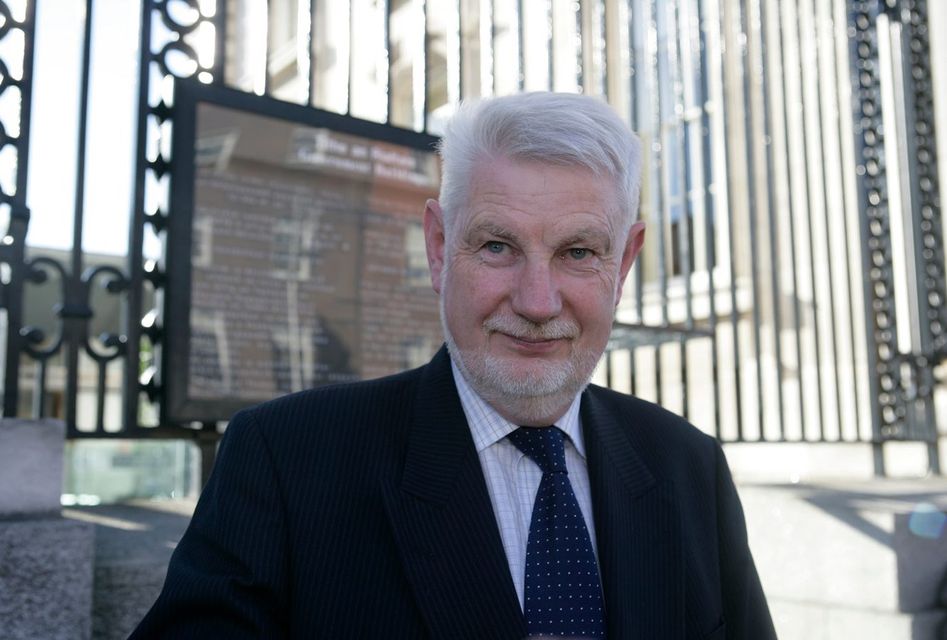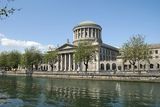Workers will demand pay hikes above 3pc: David Begg
As he prepares to step down from the helm of the Ictu, David Begg tells Anne-Marie Walsh that workers now feel emboldened
THE outgoing leader of the trade union movement expects "pent-up" demand among workers to escalate into claims for pay increases of over 3pc next year.
General Secretary of the Irish Congress of Trade Unions David Begg, whose organisation represents almost 800,000 workers, revealed that wage claims over the 2-3pc level being lodged with employers since the recession are likely.
He said workers will want to recoup what they lost during the downturn as well as a cost-of-living increase.
Speaking as teachers prepare to down tools on Tuesday, he added that workers will also be more emboldened to take industrial action in the coming years.
"It's natural enough in a deep recession that people are very concerned about their jobs and are less likely to want to engage in industrial activity," he said.
"And as that recedes, I think people will be more inclined to, particularly if they feel they're in a backfoot situation and they feel they have lost considerably over a number of years. I think that people will be emboldened more than they have been.
"If employers are sensible, that won't happen, but if there are huge disagreements, then quite possibly it will."
Mr Begg predicted a "resurgence of strong wage activity" in the private and public sectors, although he said wage activity tends to lag a little behind economic growth.
Mr Begg said he wasn’t particularly disappointed with Labour’s performance in Government
"But at the same time I expect that it will build quite strongly because if you look at the situation since the recession, an overall 5pc drop in wages has happened across the economy," he said.
"Leaving aside normal expectations of wage growth that would have happened over that time, the combination of those two will probably create some pent-up expectations of wage movement and I think it's very likely that will be the case in the second half of next year."
He said expectations will be higher as people try to regain losses, although recent 2pc demands represented a significant increase as inflation is less than 1pc.
Mr Begg pointed to a decision by Siptu's manufacturing division to review its 2-3pc pay claim policy, and a TEEU decision to lodge 5pc claims. "If they are straws in the wind, it is an indication of more robust claims," he said.
He added that the lower- paid should benefit more when the Government considers restoration of cuts in the public sector next year.
Mr Begg denied that unions made mistakes during the social partnership period or that the government attempted to buy them out. He said partnership had enemies on the left and right, who opportunistically attacked it during the crisis.
He said he was a strong advocate of social partnership and believed it was impossible to run a strong, open economy without institutions for building a national consensus. "A really serious public policy mistake has been made in deconstructing the institutions of social partnership because it might be very difficult to put them back together in the future," he said. "How are we going to handle some of the big issues?"
He does not believe unions' wage expectations were too high before partnership collapsed. He described unions' proposal at the time that public servants take unpaid leave rather than a wage cut as a "rational" proposal, which was rejected by Fianna Fail backbenchers.
He said the last national wage deal was reasonable in the economic conditions of 2008.
"The demands of recapitalising the banks caused the fiscal crisis," he said.
Mr Begg said he wasn't particularly disappointed with Labour's performance in Government and said the "policy space" available to government was limited by the involvement of the Troika.
The union chief accepted the Government's new package on water charges as a "reasonable settlement", given the state of the infrastructure and the fact that it will be largely Exchequer-funded.
But he said people were perfectly entitled to protest if they want.
However, unions including Siptu and Unite are still campaigning against the revamped charges package.
Mr Begg neither welcomed nor rejected Finance Minister Michael Noonan's announcement that the Universal Social Charge was here to stay. He said what matters is that the overall tax system is progressive, which means most of the burden is borne by the wealthy.
However, he said one advantage of the USC is that it is not as easy to avoid as general taxation, which can be reduced through reliefs. "It is not easy for highly paid people to avoid."
Mr Begg was speaking on the closing date for applications for his job yesterday.
Join the Irish Independent WhatsApp channel
Stay up to date with all the latest news















